Wondering if a high flow air filter is worth it? A dirty air filter can negatively impact engine performance and fuel efficiency by reducing airflow and potentially damaging engine components.
Upgrading can enhance your engine’s performance, improve fuel efficiency, and boost overall driving experience. In this article, we’ll dive into why a high flow air filter is a smart upgrade for your vehicle.
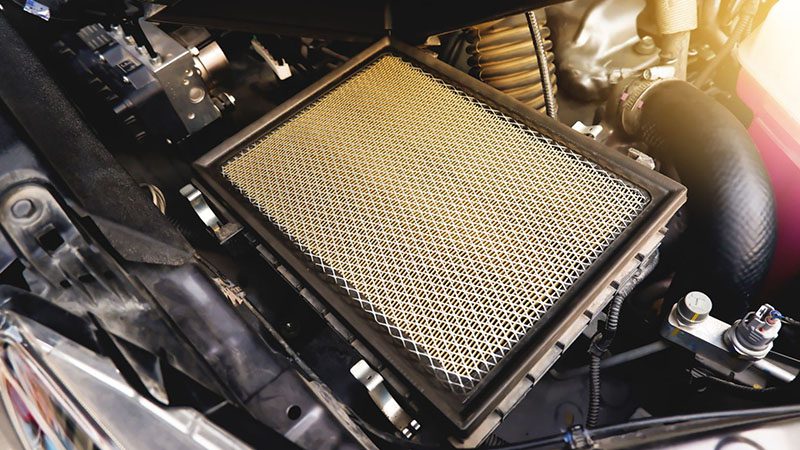
Key Takeaways
- High flow air filters enhance engine performance and fuel efficiency by increasing airflow and improving combustion.
- These optimized filters are specifically designed to provide superior engine protection, extending engine life by capturing dirt and debris more effectively than standard filters.
- High flow air filters require less frequent replacement, making them a cost-effective and environmentally friendly option over time.
Understanding High Flow Air Filters
Air filters with high flow capabilities are engineered to maximize the amount of air entering an engine, thereby boosting both power and efficiency.
These filters distinguish themselves from standard ones by being less obstructive, typically constructed from materials such as cotton that facilitate a greater volume of air while still capturing dust and debris.
The enhanced airflow coupled with efficient filtration is why high flow air filters have become favored options among automotive enthusiasts.
Focused on augmenting engine performance, these particular filters leverage materials that offer minimal resistance, enabling a substantial increase in airflow when compared to conventional paper-based filters.
Consequently, engines receive more oxygen required for optimal performance, leading to discernible enhancements in the overall driving experience.
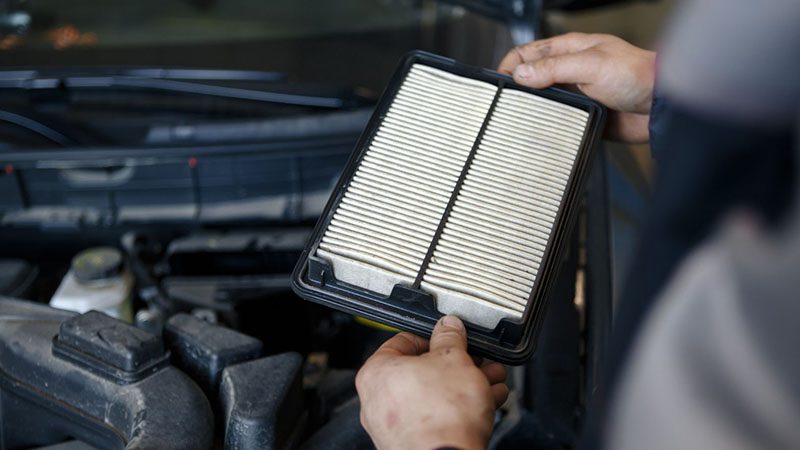
Performance Gains with High Flow Air Filters
Boosted Horsepower and Torque
One of the primary reasons drivers upgrade to high flow air filters is the noticeable boost in engine power.
These filters are engineered to maximize airflow into the engine, enabling a more efficient combustion process.
With more oxygen available, your engine can generate increased horsepower and torque—key performance metrics that enhance acceleration and responsiveness whether you’re cruising highways or navigating city streets.
Enhanced Fuel Efficiency
A high-performance air filter doesn’t just improve power—it also helps your car use fuel more efficiently.
By optimizing the air-to-fuel ratio required for combustion, high flow filters reduce the workload on your engine, preventing the strain caused by restricted airflow.
This improved combustion efficiency translates into better mileage and reduced fuel consumption.
Additionally, these filters often draw in cooler, denser air, which contains more oxygen—further boosting fuel economy.
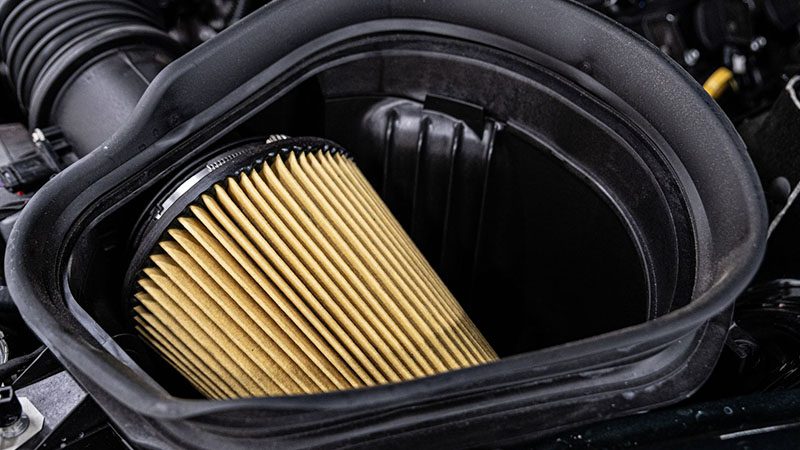
Cleaner Emissions and Environmental Benefits
With better airflow and combustion comes cleaner engine operation. High flow air filters help reduce the number of unburned fuel particles released into the atmosphere, supporting more complete combustion and lowering harmful emissions.
This not only improves performance but also contributes to a smaller environmental footprint.
Prolonged Engine Life
High flow air filters are also designed to protect your engine. By capturing dirt, dust, and debris before they reach the combustion chamber, they safeguard critical internal components from wear and tear.
Many of these filters retain over 99% filtration efficiency, and interestingly, their performance can improve over time as they trap more particulates.
This superior filtration reduces engine wear and helps maintain consistent performance over the long haul—especially important for high-performance engines that demand cleaner air for peak operation.
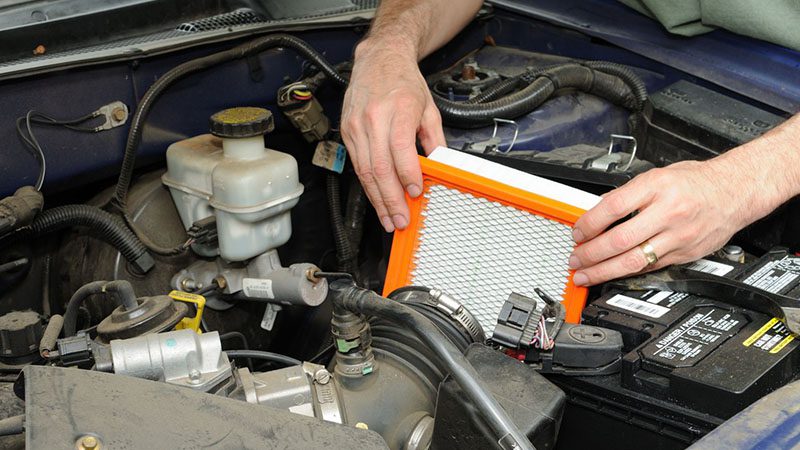
Comparing High Flow Air Filters to Standard Filters
Comparative analysis reveals distinct contrasts between high flow air filters and conventional ones.
High performance variants are engineered with a more open type of media structure, which results in enhanced airflow capability.
In contrast, traditional filters utilize a different type of media that prioritizes trapping dirt to safeguard the engine, but offers little in terms of boosting overall engine performance.
These high flow alternatives typically boast an extended service life and necessitate fewer changes thanks to their advanced capacity for containing dirt.
Many such filters can be cleaned and reused, offering both ecological benefits by diminishing waste and financial advantages through lowered ongoing expenses.
MERV ratings serve as benchmarks for assessing an air filter’s proficiency at capturing pollutants—a factor that influences not only its filtration efficiency but also the rate of airflow it permits.
Although certain evaluations suggest minimal horsepower gains from using high flow air filters, their proven effectiveness at ensnaring finer particulates while delivering heightened engine protection remains uncontested.
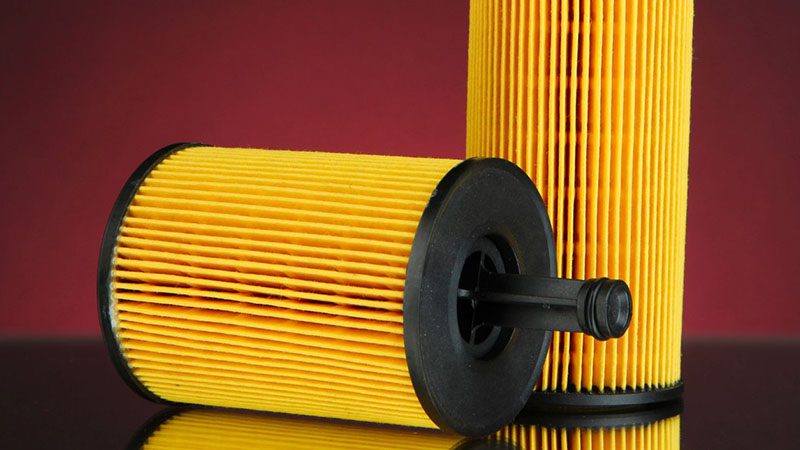
Installation and Maintenance
Implementing a high flow air filter into your engine system is an uncomplicated task requiring only elementary tools.
The procedure involves discarding the old air filter and fitting in its place a new, more efficient one. Such filters are designed to be both washable and reusable, leading to ongoing cost-effectiveness and diminished environmental impact.
It is crucial to regularly check the condition of the air filter to ensure optimal performance.
Initiate cleaning by taking out the high flow air filter and dislodging loose debris with gentle taps. Proceed by applying an appropriate cleaner followed by rinsing under low-pressure water streams.
Ensure complete drying before reapplying oil for peak performance. Distribute the oil uniformly across the pleats, waiting approximately 20 minutes afterwards.
Consistent upkeep guarantees that your high flow air filter maintains premium efficiency levels ensuring superior airflow while safeguarding your engine against detrimental contaminants.
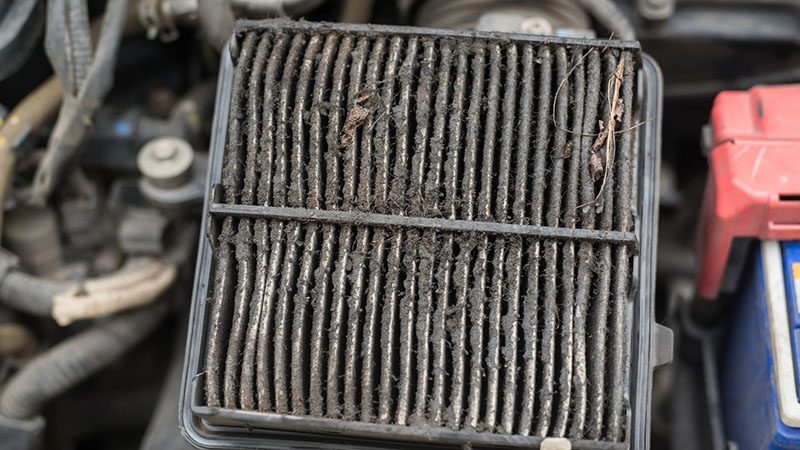
Best Brands on the Market
Reputable companies like K&N, as an established leader in this area, are well-known for their reusable and washable filters which provide exceptional filtration while enhancing airflow.
Many consumers report noticeable gains in engine sound quality and acceleration after installing K&N’s filters.
AEM also commands respect within the market thanks to their commitment to innovation and rigorous research focused on boosting engine function.
Their reliability under tough environmental conditions has garnered acclaim, securing AEM’s status as a preferred option among numerous drivers and corporate clients.
Budget-conscious individuals may find Spectre an appealing choice due to its cost-effective yet efficient high flow air filter solutions.
For reference, here is a video that tests the performance of popular air filters, comparing their airflow, restriction, and ability to filter out contaminants:
Investing in trusted brands from reputable companies such as K&N or AEM could translate into significant advantages regarding automotive efficiency and endurance over time.
Considerations Before Upgrading
Before opting for an upgraded high flow air filter, take into account the driving conditions you typically face and your vehicle’s particular requirements.
If your journeys frequently lead you through dusty or dirty environments, be prepared to change out a filthy air filter more regularly than usual.
Ensuring that the chosen filter precisely corresponds with the make, model, and year of your vehicle is critical for achieving optimal performance.
It is also important to buy the right high flow air filter for your specific vehicle model to ensure compatibility and efficiency.
Despite their higher upfront cost, high-performance filters can be a wise investment in the long term due to their robustness and reduced need for frequent replacements.
It is important to assess whether the potential savings from durability outweighs its initial cost within your financial planning.
To avoid causing harm and retaining warranty protection on high flow air filters, always use cleaners and oils recommended by manufacturers.
Proper upkeep ensures both extended life span and sustained performance levels of these advanced filtration systems.
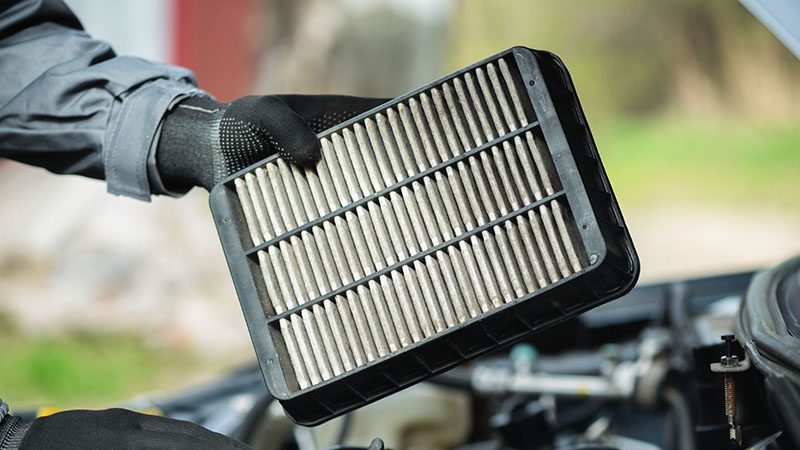
Common Myths About High Flow Air Filters
Numerous misconceptions about high flow air filters should be dispelled.
A prevalent misunderstanding is that these filters do not markedly enhance airflow or boost engine efficiency.
Nevertheless, evidence from real-world testing indicates that vehicles outfitted with high flow air filters experience an increase in both horsepower and torque when contrasted with those employing regular filters.
The difference in performance between high flow air filters and standard filters lies in the filtering media, which impacts engine efficiency and airflow.
There’s also a false belief that it is cumbersome to install and maintain high flow air filters.
Contrary to this, they are straightforward to set up and necessitate only simple maintenance using common tools.
By capturing more dirt and particles, upgrading to a high-flow filter can safeguard the longevity of the engine, thereby improving its performance over time.
Lastly, there’s skepticism around whether high flow air filters actually offer superior airflow relative to standard ones. Yet these types of filters are specifically crafted for substantially bolstering airflow, which contributes positively to overall engine function.
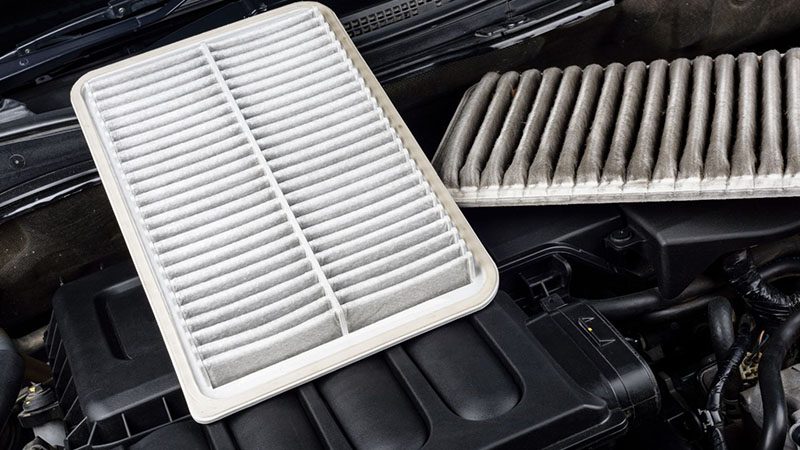
Summary
Upgrading to a high flow air filter offers numerous benefits, from improved performance and fuel efficiency to prolonged engine life.
These filters provide better airflow, enhance combustion efficiency, and protect your engine from harmful particles.
High flow air filters can add tangible performance benefits to your vehicle, especially in specific setups.
While the initial cost may be higher, the long-term savings and environmental benefits make them a smart choice for many drivers.
If you’re looking to enhance your car’s performance and longevity, consider investing in a high flow air filter.
With proper installation and maintenance, these filters can provide a noticeable boost to your driving experience and help you get the most out of your vehicle.
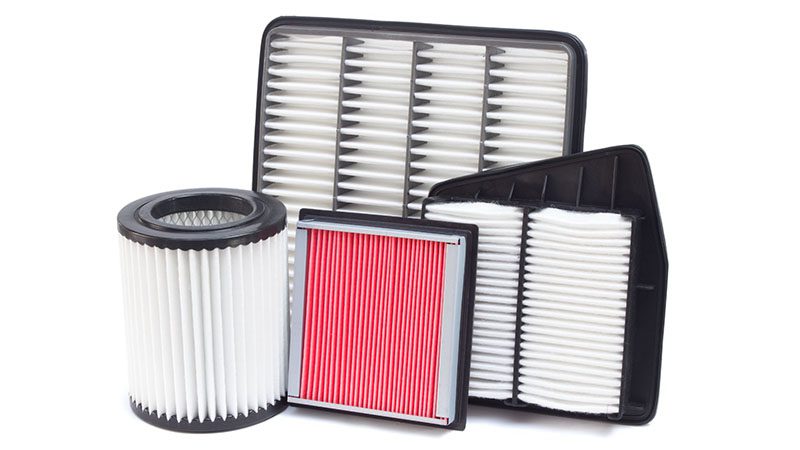
At Nanjing Woda Auto Technology Co., Ltd., we specialize in high-quality OEM and aftermarket engine parts—including high-performance air filters—trusted by customers in over 100 countries.
Whether you’re a parts dealer, repair shop, or performance enthusiast, we’re here to help you get the most out of your engine. Contact us today or explore our full product range to find the right solution for your needs.
Frequently Asked Questions
What are the main benefits of upgrading to a high flow air filter?
Upgrading to a high flow air filter significantly enhances engine performance and fuel efficiency by improving air flow and filtration, which also extends engine life.
This investment contributes to a more efficient and long-lasting vehicle operation.
How often should I replace or clean my high flow air filter?
You should clean and re-oil your high flow air filter every 30,000 to 50,000 miles, depending on your driving conditions.
Regular maintenance ensures optimal performance and longevity. It’s important to check the filter every 30,000 to 50,000 miles or every few months, depending on driving conditions, as a warm or dusty day can significantly impact the filter’s efficiency.
Are high flow air filters difficult to install?
High flow air filters are generally easy to install and typically require minimal tools, with most installations taking just a few minutes when following the manufacturer’s instructions.
Do high flow air filters increase horsepower?
High flow air filters can enhance horsepower by improving overall engine efficiency and performance, even if immediate gains may be minimal.
Therefore, investing in a high flow air filter can lead to better long-term engine performance.
Which brands are recommended for high flow air filters?
K&N, AEM, and Spectre are highly recommended brands for high flow air filters due to their performance and reliability.
These brands offer great value for enhancing your vehicle’s air intake system.





